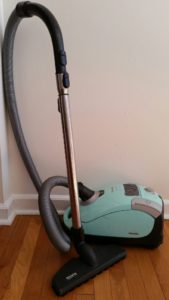 Many people think that only exercises done in a gym, in exercise classes, or with exercise equipment can improve health. But no! Any physical activity is good, which means ordinary walks and household tasks or housework are beneficial. And the more frequently you do them, the more beneficial.
Many people think that only exercises done in a gym, in exercise classes, or with exercise equipment can improve health. But no! Any physical activity is good, which means ordinary walks and household tasks or housework are beneficial. And the more frequently you do them, the more beneficial.
Studies show that physical activity from housework tasks (e.g., vacuuming) are associated with improved cognition, increased brain volume, and executive functioning of the brain in older adults, and with less frailty. Higher levels of physical activity are linked to a reduction in early death and heart diseases. Heavy household tasks (e.g. vacuuming, window cleaning, scrubbing, painting) have more benefits than light household tasks (e.g., dusting, ironing, doing laundry, washing dishes, cooking).
I know, I know - no one wants to get up and do such household tasks as vacuuming, but think of it as exercise class replacement.
A commentary (and video) by Dr. Stephan Martin discussing studies showing housework improving health and fitness. From Medscape: Housework Can Increase Brain Volume and Physical Fitness
Physical activity is a panacea: it protects against cardiovascular events such as myocardial infarction and stroke. Very active people are less likely to have type 2 diabetes, and the prevalence of dementia is apparently lower for them.
Because of mechanization and automation in the workplace, fewer and fewer jobs involve physical activity. Even in our own homes, we invest large amounts of money so that mowing or vacuuming robots can help out around the house.
In addition to this, we spend large amounts of money on the gym to get ourselves physically active. Would it not be more sensible to do these strenuous household tasks instead of spending time at the gym?
This poses the question of whether strenuous household tasks, such as cleaning windows and vacuuming, are actually healthy. Two current studies on the topic have revealed surprising results.
In the Singapore study, data were collected on how often the participants performed light or heavy housework. Light tasks included cooking, dusting, and tidying up. Heavy tasks included cleaning windows, vacuuming, and making beds. The results showed that people who do strenuous housework are fitter, in terms of their physical and mental capacity, than those who do not perform these tasks.
In the Canadian study, there was a significant association between brain volume and gray matter and the degree of housework performed.
We know that a lot of household tasks are still predominantly performed by women. Is this perhaps a reason that women live longer and stay fitter mentally into old age than men?
